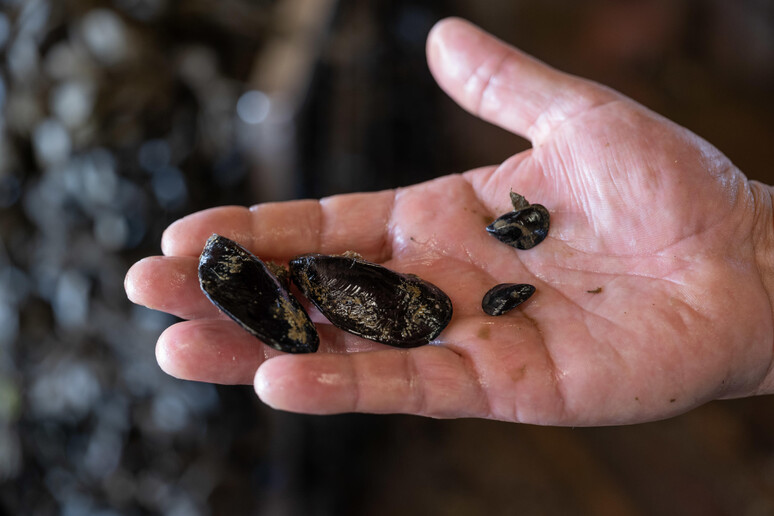Italian clams have been virtually
exterminated by an invasion of blue crabs and now the native
population of their replacement lupins has been decimated by
mucilage, Confcooperative Fedagripesca said in an alert to ANSA
Saturday.
Real Italian clams, the key ingredient for one of the nation's
favourite pasta dishes, have practically disappeared from the
fish counters, it said.
The blue crab has plundered the farms of the Po Delta.
And now the sea ones, known as lupins that until now had been
saved, are suffering because of the wave of mucilage that hit
the entire Adriatic coastal strip this summer.
The business, before the arrival of the blue crab and the
mucilage, was worth 300 million euros, said the association.
The large gelatinous masses in the summer months caused
considerable difficulties for fishing by damaging the catching
gear and now that the algae have settled on the seabed they are
a threat to clams, mussels and cockles; species that move little
and are dying due to anoxia and rising water temperatures.
For these reasons, fishermen have carried out an additional
stoppage and are asking for financial support for these days of
their fishing ban.
And if it is increasingly difficult to bring a plate of
spaghetti with clams made in Italy to the table, there is a boom
on the import front where Portuguese clams reign supreme.
A survey by Fedagripesca recalls that at home and in the
restaurant for 7 out of 8 Italians spaghetti with clams is among
the favorite first courses of fish, which make them "justly
celebrated".
And an answer to repopulate the farms in Veneto and Emilia
Romagna could come from Portugal.
But it is not easy to restart this economy, where Italy was a
leader in Europe: it is necessary to reclaim the waters from the
crab, fence off the production areas and put the product back
into the water to be farmed.
"The problem is precisely this last one - explains Paolo Tiozzo,
vice president of Confcooperative Fedagripesca - because a
quantity of seed is needed, the estimated need is for billions
of specimens of true clams, impossible to find and manage with
the 'hatcheries' we have today".
ALL RIGHTS RESERVED © Copyright ANSA











